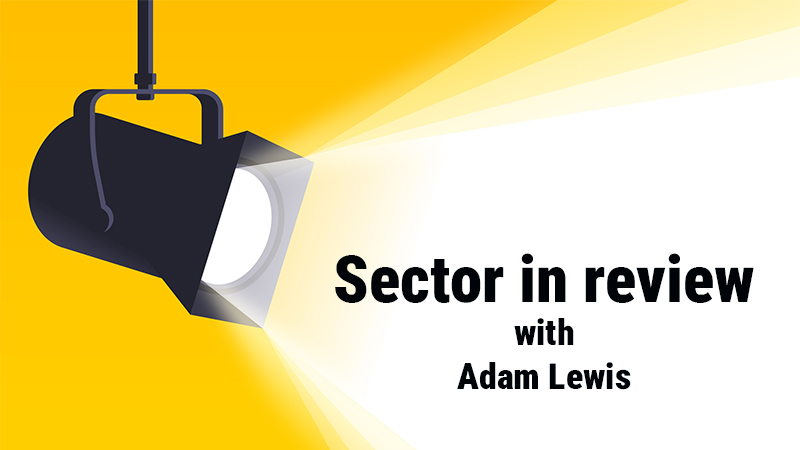Worries about an upcoming election, combined with the highly concentrated nature of its stockmarket, are doing little to deter investors from continuing to pile into US equities.
According to data from the Investment Association (IA), some £1.8bn has been invested into the IA North America sector over the year to the month of May (the latest available figures), in stark contrast to the £4.7bn of outflows in the IA UK All Companies sector over the same period.
Given such a wide variation in sentiment between the two sectors, the assumption might be that one is massively outperforming the other. However, according to data from FE fundinfo, versus a 12.07% gain from the S&P 500 over the year to July 25, the FTSE All-Share is up 8.21%.
Negative sentiment towards the UK aside, with an election in November and talks of interest rate cuts firmly on the table after the US Consumer Price Index (CPI) came in below expectations in June, are investors right to keep placing their faith firmly in US companies? The question seems particularly apt after last week saw US stock indices experience their worst day (Wednesday) in over 18 months as a result of large by falls in some of the biggest technology stocks.
Driven by the fiscal support from the Biden administration and the likelihood of a series of interest rate cuts over the next 18 months, David Coombs, head of multi asset at Rathbones, said he retains a “constructive” view on US equities.
See also: Sector in review: IA UK All Companies
“Even if Donald Trump was to roll back on the spending commitments, many projects are already underway,” he said. “It is our view the US will avoid recession and achieve the soft landing which will ensure Powell is safe even if Trump wins.”
However, despite admitting that any stability in the US would be welcome, Coombs added there is one “major” caveat, and that is the concentrated nature of performance within the US market over the past year.
“Much of the index returns over the past year or so have been driven by a narrow number of constituents, so-called big tech,” he said. “It is possible that lower rates will drive a more positive outlook for many sectors that have been left behind, so the high-level index returns may look more modest than the recent past and technically underperform other geographies.
“This change of market leadership should favour our US portfolios, which tend to be more diverse than the indices given we follow a more equally-weighted approach, rather than market weighted,” Coombs added. “We also favour exposure to mid and small caps as they tend to benefit from lower rates so long as we avoid a recession.”
While valuations at the top end of the US market look “very rich”, Alex Paget, fund manager at Downing Fox, said the US managers held within their portfolios remain “very optimistic” about future returns.
“When thinking about US equities, you really need to split out a small handful of very big technology/AI-related stocks and everything else,” he said. “This is challenging, as those very big tech/AI-related stocks now make up a lot of the US equity market.”
See also: Rathbones’ David Coombs weighs in on a second Trump presidency
Paget said the Downing Fox funds outsource geographic decision-making to its often large-cap orientated global equity funds, which currently make up about 50% of its equity book.
“We leave them to tell us which areas are attractive or not based on their bottom-up stockpicking, but it’s interesting to note that those global equity managers are severely underweight the US market (and the magnificent seven) relative to a global index, suggesting that better opportunities are available in Europe, Japan and the UK,” he said.
Despite this, Downing Fox does allocate to specific US funds within its portfolios, but Paget noted these are specialist all-cap/small-cap funds, three of which are based in the US and the other is UK-based run by an American manager. These funds are Spyglass US Growth, First Eagle US Small Cap Opportunity, and Snyder All Cap US Equity and Pacific North American Opportunities (which is based in the UK but run by ex-Findlay Park American manager Chris Fidyk).
“Outside of mega caps, our US managers are very excited by the opportunity set,” said Paget.
One manager less concerned about US large caps is Michael Jervis, multi-asset manager at Sarasin & Partners. While he predicts the equity market recovery is likely to widen in due course, he said he continues to see potential in the largest US companies.
“Their remarkable performance is well-founded on superior earnings growth and robust business models, with further support provided by share buybacks,” said Jervis.
“In our view, US tech companies, including some of the magnificent seven, could have more to offer but a selective approach and a focus on quality will be key,” he added.
See also: Industry reacts to Kamala Harris candidacy and market moves as Biden bows out
Fabiana Fedeli, chief investment officer, equities, multi-asset and sustainability at M&G, said the performance of the magnificent seven from a global perspective has become interesting in the second quarter of 2024.
“Remember when we were all concerned about the magnificent seven’s unstoppable rise? Well, we are now down to a magnificent one,” she said. “In 2023, Nvidia was the fifth top-performing stock globally, with Meta in eighth position, and Tesla 49th. Microsoft, Alphabet, Apple and Amazon did not make it to the top 100.
“By the second quarter of 2024, only Nvidia was in the top 100, making the 55th place. In our opinion, this indicates that investors’ horizons have been progressively broadening, looking beyond the US and beyond the magnificent seven.”
As a result, Fedeli said within M&G’s multi-asset portfolios, the most tactical strategies have pared back their equity exposure which had recently moved to a small overweight and are now running a relatively neutral directional equity exposure.








